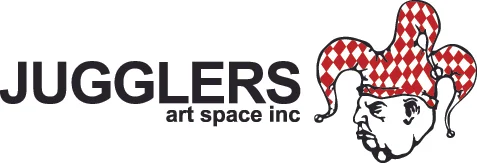Home Grown Phantomb Lim (sic)
/By Joseph Breikers
I began composing this piece of writing in my head as I sat – seat down and lid closed – on a public toilet. I was thinking about Ben Landers’ name and enjoying the feeling of letting it roll lazily about my head, and slide off my tongue. It’s a pretty good name.
……
An image of Ben Landers’ wry, bespectacled grin is never far away when I look at his drawings, paintings, and small sculptures. The artist seems to haunt his work (partly because I know him, but also, and more importantly, because of his sense of the vernacular). So it seems fitting that a bugle of text announces that “IT’S ALL ME” on the artist’s website.
The artist is present.
Part of the artist is present.
The artist’s hand is present.
To say the hand begets value is nothing new, nor astounding. Nor is it entirely accurate; there is a wide, and fluctuating array of attractions and influences that culminate in ‘worth’ or ‘worthlessness’. I will admit that in some spheres, the equation of ‘hand made equals value’ has an old-world, low-impact charm. But I am suspicious of its attraction when it comes to that thing we call art. And I think Ben Landers shares this suspicion.
Although, what if, despite being sceptical of the criteria (namely, in this instance, the hand) typically used to assess the cultural significance of a piece of art (or, in fact, what constitutes art), one still has a desire to make with their hands? The ‘problem’ then becomes how to negotiate one’s suspicion of an arborescent system of value that favours the presence of the maker’s hand, and one’s desire to make with their hands. This ‘problem,’ if left unresolved, can become an agent in the creative act.
Idle hands are at the service of the Devil.
Hail Satin.
The banjo is an extremely difficult instrument to play.
Whittling progressed from occupation (Joseph built my table, Jesus built my hot rod) to hobby, with the development of mechanical wood working tools, and, like most crafts or hobbies, is outside the distinguished realm of art. As a way of occupying time, this particular type of woodcarving is often associated with those on the societal fringe. It conjures up images of staunch Appalachian reclusiveness, and the cruel stereotypes of shallow gene pools, and the resultant physical anomalies.
However, to say that whittling is a craft, hobby, or past time has a sense of resignation about it. As though I am giving in to the ease of hierarchical thought, and a discriminatory and humourless system that places little value in ‘idleness’ and ‘craft’.
It may sound grandiose, but it seems to me that the simple act of placing value in ‘idleness’ and ‘craft’, is an act of resistance. Folk and DIY culture, amateur aesthetics, craft, the naïve, outsider, the vernacular – what Mikhail Bakhtin might have called the active ‘unofficial culture’ – have a long history of being creative outlets for the ‘anonymous mass’; that is, us. This ‘unofficial culture’, and the laughter that can spill from it, becomes particularly potent when viewed as a space of denial, and deflection in relation to ‘official culture’[1]. Placing value in ‘idleness’ and ‘unofficial culture’ (craft et al.) can provide resistance by subverting dominant ideologies. This simple gesture, at its most impressive, has the potential to open up a space in which to interrogate our cultural, political and social conventions. Maybe!
Revolting the masses.
He means well.
Just smells bad.
Ben Landers neither means well, nor smells bad. He does not mean well in the sense that there is some level of seditious cunning at work here, and he does not smell bad in the sense that he maintains a respectable level of personal hygiene. Landers draws heavily on the mediums and techniques of that ‘unofficial culture’: marquetry, whittling, and watercolour painting. Alongside this, is a deliberate and sustained play across formal and technical amateurism. This amateurism is punctuated by intermittent displays of technical skill. These few ‘very able’ works[2] seem to suggest that the decision to eschew formal and technical skill is one of luxury, not necessity. Landers can paint, draw and whittle well, he just chooses not to most of the time.
Through vernacular humour, erasure and overwriting, and an innate resistance to dogma these works reference the pursuits and past times of the delinquent, and the bored: skating, table tennis, science fiction movies, and video games. There is a sense that these works function like jokes. That they are to be ‘got’. Some give themselves up quite easily, while others frustrate the viewer with impenetrable in-jokiness. Ben Landers is, in some respects, like Martin Kippenberger. He just has quieter friends and a healthier liver.
[1] ‘Official’ and ‘unofficial’ are simply alternative, and I think slightly less hierarchic, terms for ‘high’ and ‘low’ culture.
[2] Which are often complicated by the presence of humour.



